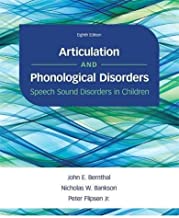Phonological Disorder
Phonological disorder is a type of speech sound disorder. Speech sound disorders are the inability to correctly form the sounds of words. Speech sound disorders also include articulation disorder, disfluency, and voice disorders.
Cluster Number:
Wiki Number: PW167
Diagnosis: Phonological Disorder-Speech Sound Disorder
US Patients:
World Patients :
Sex Ratio:
Age Onset:
Brain Area:
Symptoms: A child or adult does not produce or use speech sound phonemes correctly.
Progression: Phonemic disorders-not learning the correct sound for the letter(s); articulation disorders-not pronouncing them correctly.
Causes: There can be omissions, additions, distortions or substitutions in the sounds or words
Medications: None listed.
Therapies: Services of a speech pathologist or therapist should be helpful.

